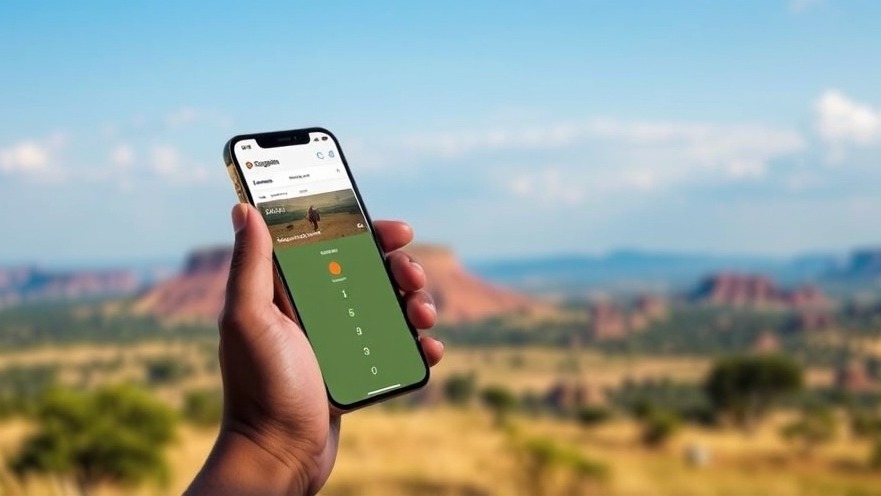
Disrupting Traditional Payment Systems in African Sports
The sporting landscape in Africa has often been overshadowed by the struggles of players facing delayed payments and lack of support. However, the introduction of betPawa's Locker Room Bonus (LRB) is ushering in a new era of efficiency in how athletes are rewarded for their performance. This forward-thinking system utilizes mobile technology to ensure players receive their rewards immediately after a match, a revolutionary shift from the outdated practices that have plagued the industry for years.
How the Locker Room Bonus Works
The Locker Room Bonus exemplifies how fintech can enhance player welfare. When teams prepare for a match, they submit player information to betPawa, entering players into an automated rewards system that verifies their identity through the pawaPass security platform. This ensures that once they achieve victory on the field, instant payments are made to their mobile wallets, eliminating bureaucratic delays and creating a culture of motivation.
Driving Professionalism and Equality in Sports
Beyond immediate financial rewards, the LRB fosters a more professional sporting environment. It mandates that federations and teams adhere to strict guidelines regarding player eligibility and matchday operations. More importantly, it champions gender equality, offering equal bonuses to female athletes competing in leagues and tournaments, breaking barriers of traditional sports sponsorship that often favor male players.
The Future of Work and Fintech in Africa
As betPawa looks to expand its services to Nigeria and beyond, it signals a shift towards innovation-driven sports management across Africa. The Locker Room Bonus program not only enhances player experiences but also sets the stage for broader adoption of digital transformation in sectors like finance, sports, and beyond. This initiative exemplifies how African startups can leverage technology to optimize business processes and create new opportunities for growth.
Call to Action: Embracing Change in African Sports
For those in the tech and investment sectors, the success of the Locker Room Bonus serves as a crucial case study in the intersection of fintech and sports. Engaging with innovative platforms like betPawa can shape the future of sports welfare and inspire further technological breakthroughs. If you represent a sports federation or organization, consider collaborating with betPawa to bring this transformative initiative to your local athletes and drive change in player welfare.
 Add Row
Add Row  Add
Add 


Write A Comment